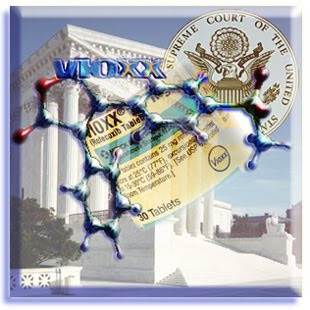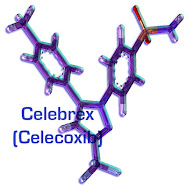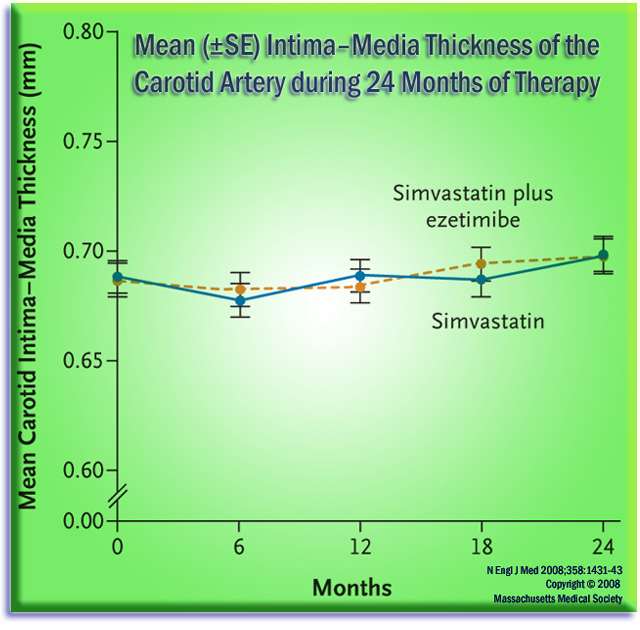 I thought I'd mention that Paulson's funds made a merger arbitrage bet -- to the tune of $1.4 billion -- last summer, on the Schering-Plough/Merck transaction. To be fair, Paulson made a much-larger arbitrage bet on the Pfizer/Wyeth transaction, at about the same time.
I thought I'd mention that Paulson's funds made a merger arbitrage bet -- to the tune of $1.4 billion -- last summer, on the Schering-Plough/Merck transaction. To be fair, Paulson made a much-larger arbitrage bet on the Pfizer/Wyeth transaction, at about the same time.
In any event, at some time during the fourth quarter of 2009 (the same quarter in which the Merck deal closed), Mr. Paulson's fund liquidated over $1 billion worth of the New Merck position, completely divesting itself of Merck/Schering-Plough. During that same quarter, his fund took very large new investments in the stocks of Bank of America, Wells Fargo, JP Morgan Chase and Citibank's parent, Citigroup:
. . . .According to a regulatory filing, Paulson bought 206.7 million shares of Citigroup Inc. during the fourth quarter of 2009, giving it a stake of more than 500 million that would make Paulson one of the top five institutional holders of the company's stock if it still holds them today. . . .
 So, he went from betting that debt-pools he allegedly selected, and heavily weighted with "dog-debts", would collapse and default. Then, allegedly, Goldman Sachs & Co. packaged up these dogs, and flogged them to its clients, as non-dogs -- claiming that an "independent" adviser had selected the assets. Goldman did not disclose that the "independent" adviser was -- in effect -- shorting those very same asset-pools. Once he had pocketed his billions on those bets, he next placed a 33.8 million share bet on the Schering-Plough bust-up -- netting an indeterminant amount in excess of $1 billion (we'll never know exactly, what average price he bought in at -- nor at what average price he exited, but in those relevant quarters, his net spread was always north of $1 billion, and at points nearly $2 billion).
So, he went from betting that debt-pools he allegedly selected, and heavily weighted with "dog-debts", would collapse and default. Then, allegedly, Goldman Sachs & Co. packaged up these dogs, and flogged them to its clients, as non-dogs -- claiming that an "independent" adviser had selected the assets. Goldman did not disclose that the "independent" adviser was -- in effect -- shorting those very same asset-pools. Once he had pocketed his billions on those bets, he next placed a 33.8 million share bet on the Schering-Plough bust-up -- netting an indeterminant amount in excess of $1 billion (we'll never know exactly, what average price he bought in at -- nor at what average price he exited, but in those relevant quarters, his net spread was always north of $1 billion, and at points nearly $2 billion).And now he's back invested in the banks, themselves. [For what it's worth, Paolo Pellegrini, who co-managed the Paulson funds at the center of the SEC inquiry, cooperated with the SEC in its investigation of Goldman, Reuters reported Friday, citing people familiar with the matter. Since Paulson was not making any affirmative representations to the investing public about the quality of the pools he put
 together, he'll likely not be charged. I do think it unlikely that he didn't at least read what Goldman wrote in the relevant prospectuses, in connection with flogging the pools, though. Was there a duty to inform Goldman, and ask Goldman to correct the references to an "independent" adviser "selecting" the assets (impliedly for their relatively favorable characteristics) for inclusion in the pools? I dunno.]
together, he'll likely not be charged. I do think it unlikely that he didn't at least read what Goldman wrote in the relevant prospectuses, in connection with flogging the pools, though. Was there a duty to inform Goldman, and ask Goldman to correct the references to an "independent" adviser "selecting" the assets (impliedly for their relatively favorable characteristics) for inclusion in the pools? I dunno.]Fascinating -- he is clearly a smart man. It is worth noting that while he liquidated all of his merger bet on Merck, as of Q1 2010, he still held 15.6 million shares of the post-merger Pfizer (about $284 million worth -- down immensely from his arbitrage bet, but still significant). Does Paulson see Pfizer as undervalued -- post merger -- at $17, and change? Was he calling Merck overheated, at anything over $37? I dunno.
We'll see what he did in Q1 2010, shortly.

















3 comments:
http://money.cnn.com/galleries/2010/fortune/1004/gallery.fortune500_mostprofitable.fortune/7.html
thought you'd appreciate this. Merck is #7.
Thanks for this! Very telling.
I think the "one-time-er-ness" (a non-word, that!) of the Schering-Plough bust-up (to New Merck's longer term results) will appear far more clearly in 2011 year-end results, than it does, now. In fact the Fortune blurb closes thus:
". . . .Merck is back on track. Earnings grew by more than half in 2009, driven mostly by a one-time gain it booked from the merger. . . ."
Finally, as irony would have it (given my post, above) the Fortune List's Number 6 (i.e., one ahead of New Merck) most profitable company in the world is. . . none other than Goldman, Sachs & Co.
On that score, it's relatively easy to make all that money when you engage in pattern multi-billion dollar fibbing -- to your clients about what they are really buying -- and whether it was selectd by a truly disinterested, independent adviser -- or someone you've helped set up bets AGAINST your proposed client investments in the same fund.
नमस्ते, and do stop back through!
Have you seen Bill Black's congressional testimony on the financial meltdown? (http://blog.pharmaconduct.org/2010/04/bill-blacks-no-holds-barred.html)? I like this guy! The title of his book is great: The Best Way to Rob a Bank Is to Own One: How Corporate Executives and Politicians Looted the S&L Industry
Post a Comment